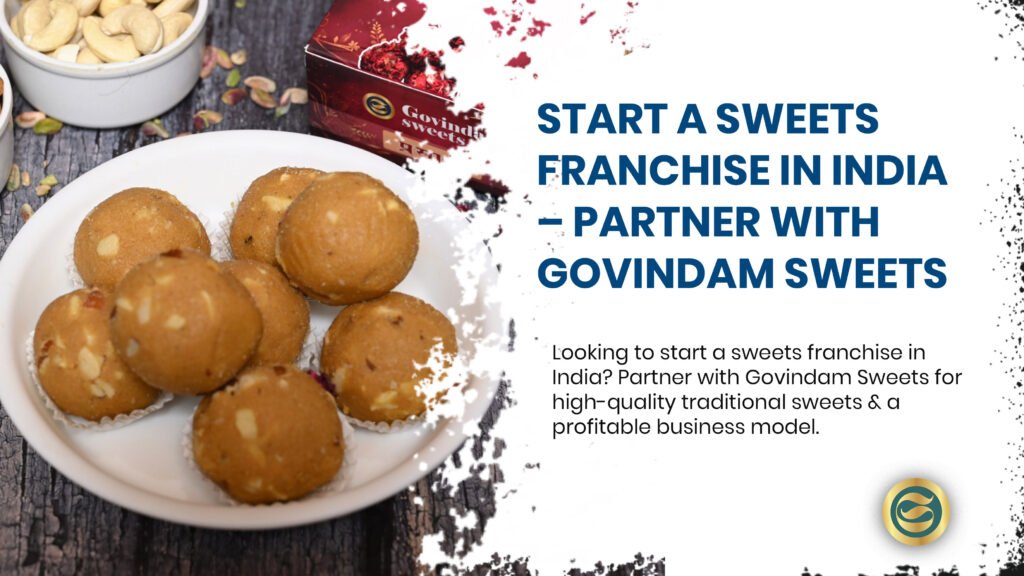Franchise Business Singapore: Ultimate Guide to Profitable Opportunities

Discover the most profitable Franchise Business Singapore opportunities in 2025, from food and beverage concepts to retail and service-based ventures. This comprehensive guide explores investment requirements, success factors, legal considerations, and emerging trends for aspiring entrepreneurs looking to leverage established business models in Singapore’s dynamic market.
Franchise Business Singapore: Your Gateway to Entrepreneurial Success
Singapore’s vibrant business landscape offers exceptional opportunities for aspiring entrepreneurs through the franchise model. A Franchise Business Singapore provides a structured pathway to business ownership, combining the independence of entrepreneurship with the security of a proven business system. This comprehensive guide explores everything you need to know about franchise opportunities in Singapore’s competitive and innovative market.
The Franchise Business Singapore sector has experienced remarkable growth, with industry reports indicating a 23% increase in franchise establishments since 2023. Consequently, this expansion reflects both the resilience of the franchise model and Singapore’s supportive business environment. Moreover, the diversity of available franchises has broadened significantly, offering options across nearly every industry and investment level.
“What makes a Franchise Business Singapore particularly attractive is the balance between entrepreneurial freedom and established systems,” explains business consultant Michael Tan. “Furthermore, franchisees benefit from brand recognition, operational support, and marketing assistance while maintaining the satisfaction of building their own business.”
This guide will take you through everything you need to know about franchise opportunities in Singapore. First, we’ll explore the advantages of the franchise model. Then, we’ll examine the most profitable sectors for franchise investment. Additionally, we’ll cover essential legal and financial considerations. Finally, we’ll look at emerging trends shaping the future of franchising in Singapore.
Understanding the Franchise Business Model in Singapore
Before exploring specific opportunities, it’s important to understand what makes the Franchise Business Singapore model distinctive:
- License relationship: A legal agreement granting the right to operate under an established brand
- System adoption: Following standardized processes and procedures
- Initial and ongoing fees: Including franchise fee, royalties, and marketing contributions
- Territorial rights: Often including protection for a specific geographic area
- Support structure: Training, marketing, and operational assistance from the franchisor
“The franchise relationship is fundamentally a partnership,” notes franchise attorney Sarah Lim. “As a result, successful Franchise Business Singapore ventures require alignment between franchisor objectives and franchisee goals. Additionally, clear communication and mutual respect form the foundation of productive franchise relationships.”
From International Brands to Local Innovations
Singapore’s franchise landscape includes both global powerhouses and homegrown success stories. On one hand, international brands bring established systems and global recognition. On the other hand, local Franchise Business Singapore concepts offer deep market understanding and cultural relevance. Meanwhile, hybrid models have emerged where Singaporean businesses adapt international concepts for local tastes. Furthermore, Singapore serves as a regional hub where successful local franchises expand throughout Southeast Asia.
Top Franchise Business Singapore Sectors in 2025
The franchise model has proven successful across numerous industries in Singapore:
Food and Beverage Franchise Opportunities
The F&B sector dominates the Franchise Business Singapore landscape:
- Sweet Haven Desserts – This dessert franchise offers multiple format options from mall kiosks to full cafés, with investment levels ranging from S$80,000 to S$250,000. Their Franchise Business Singapore package includes comprehensive training and proprietary recipes for their signature cakes and pastries.
- Bubble Tea Concepts – Singapore’s enduring love for bubble tea has created numerous Franchise Business Singapore opportunities. Investment requirements typically range from S$50,000 to S$150,000, with established brands offering turnkey setups and ingredient supply chains.
- Asian Fusion Kitchens – These concepts blend traditional Asian flavors with modern presentation, creating a Franchise Business Singapore opportunity that appeals to both locals and tourists. Average investment ranges from S$200,000 to S$500,000 depending on location and format.
- Healthy Eating Chains – As health consciousness grows, Franchise Business Singapore ventures focusing on nutritious options have seen significant growth. These concepts typically require investments of S$150,000 to S$300,000 but benefit from a loyal, repeat customer base.
Retail Franchise Opportunities
Retail franchising offers compelling Franchise Business Singapore options:
- Convenience Store Formats – Modified mini-mart concepts require investments of S$150,000 to S$250,000 and offer steady cash flow as a Franchise Business Singapore option.
- Specialty Food Retail – Gourmet food shops, including Premium Confectionery outlets, present attractive Franchise Business Singapore opportunities with investment levels from S$100,000 to S$200,000.
- Fashion and Accessories – These Franchise Business Singapore concepts range from affordable fashion to luxury accessories, with investment requirements from S$80,000 to S$500,000.
- Health and Beauty Retail – Specialized stores offering wellness products, cosmetics, and personal care items represent growing Franchise Business Singapore opportunities, typically requiring S$100,000 to S$250,000 initial investment.
Service-Based Franchise Concepts
Service industries offer some of the most profitable Franchise Business Singapore options:
- Education and Enrichment – Tutoring centers, language schools, and children’s enrichment programs represent high-demand Franchise Business Singapore opportunities, with investments ranging from S$100,000 to S$300,000.
- Fitness and Wellness – From boutique fitness studios to wellness centers, these Franchise Business Singapore concepts typically require S$150,000 to S$500,000 but offer strong recurring revenue streams.
- Beauty and Grooming Services – Hair salons, nail studios, and spa concepts offer Franchise Business Singapore options with investment levels from S$80,000 to S$250,000.
- Business Services – B2B service franchises including printing, shipping, and administrative support represent lower-competition Franchise Business Singapore opportunities, often requiring S$100,000 to S$300,000 to launch.
“Sector selection is critical when evaluating a Franchise Business Singapore opportunity,” advises franchise consultant David Wong. “Therefore, prospective franchisees should assess not just current profitability but long-term market trends. Additionally, they should consider how their personal skills and interests align with the day-to-day operations of the business.”
Low-Investment Franchise Business Singapore Opportunities
Not all franchise opportunities require substantial capital:
Franchise Business Singapore Under S$50,000
Several franchise concepts offer entry points below the S$50,000 threshold:
- Mobile Food Carts – Specialized food or beverage carts offer a Franchise Business Singapore opportunity with investments as low as S$30,000, plus lower overhead than fixed locations.
- Home-Based Services – Franchises offering services like cleaning, tutoring, or specialized repairs can often be launched with S$25,000 to S$45,000.
- Vending Machine Concepts – Modern vending franchises offer a Franchise Business Singapore option with investments starting around S$40,000 for initial machines and inventory.
- Online Retail Franchises – E-commerce franchise models with centralized fulfillment can provide a Franchise Business Singapore opportunity starting from S$35,000.
Micro-Franchise Models
These streamlined business concepts offer Franchise Business Singapore opportunities with minimal investment:
- Kiosk businesses – Small footprint operations in high-traffic areas
- Service-based micro-franchises – Specialized services requiring minimal equipment
- Mobile business formats – Businesses operating from vehicles or temporary locations
- Part-time franchise models – Concepts designed for evenings and weekends
“Low-investment doesn’t necessarily mean low-return in the Franchise Business Singapore landscape,” notes financial advisor James Lim. “In fact, some micro-franchise models offer excellent ROI percentages. However, total income potential may be proportional to investment level, requiring realistic expectations about revenue generation.”
For entrepreneurs interested in exploring various franchise formats, the Festival Special franchise event showcases diverse concepts with different investment requirements.
Essential Considerations for Franchise Business Singapore Success
Beyond selecting the right franchise, several factors determine success:
Location Strategies for Physical Franchises
Site selection significantly impacts Franchise Business Singapore performance:
- Demographic alignment – Ensuring the surrounding population matches the customer profile
- Traffic patterns – Understanding foot traffic volume and peak times
- Competitive landscape – Analyzing nearby competitors and complementary businesses
- Rental economics – Balancing premium locations with sustainable rent-to-revenue ratios
- Future development – Considering upcoming infrastructure or residential projects
“Location analysis for a Franchise Business Singapore requires both data and intuition,” explains real estate specialist Chen Wei Ming. “Consequently, successful franchisees combine demographic research with personal observation of the site. Moreover, they negotiate favorable lease terms that protect the business during its growth phase.”
Financial Planning Beyond the Franchise Fee
Comprehensive financial preparation ensures Franchise Business Singapore sustainability:
- Working capital requirements – Sufficient funds to cover operations until profitability
- Financial projections – Realistic revenue and expense forecasts
- Funding sources – Options including personal savings, loans, or investor partnerships
- Break-even analysis – Clear understanding of the path to profitability
- Exit strategy planning – Long-term perspective on business value creation
“Undercapitalization remains the primary reason for Franchise Business Singapore failures,” cautions financial planner Sophia Tan. “As a result, prospective franchisees should secure not just the initial investment but adequate operating capital for at least 12 months. Additionally, they should develop conservative financial projections that account for slower-than-expected growth.”
Legal Aspects of Franchise Agreements
Understanding contract elements protects Franchise Business Singapore investments:
- Disclosure requirements – Information franchisors must provide before signing
- Territory protection – Rights to exclusive operation in specific areas
- Renewal conditions – Terms for extending the franchise relationship
- Exit provisions – Procedures for selling or terminating the franchise
- Dispute resolution – Processes for addressing disagreements
“Franchise agreements deserve thorough legal review,” advises business attorney Raymond Lim. “Furthermore, prospective franchisees should understand that while standard contracts offer limited negotiation room, clarification of terms and additional territory protections may be possible. Above all, never sign a Franchise Business Singapore agreement without professional legal counsel.”
Evaluating Franchise Business Singapore Opportunities
Conducting thorough due diligence ensures informed franchise selection:
Financial Performance Assessment
Key metrics to evaluate Franchise Business Singapore offerings:
- Unit economics – Profitability of individual franchise locations
- System-wide sales trends – Growth patterns across the franchise system
- Investment-to-sales ratios – Efficiency of capital deployment
- Royalty structure analysis – Impact of ongoing fees on profitability
- Franchisee turnover rates – Indicator of system satisfaction and sustainability
Support System Evaluation
Franchisor assistance significantly impacts Franchise Business Singapore success:
- Initial training robustness – Comprehensive preparation for business launch
- Ongoing support mechanisms – Continuing assistance after opening
- Marketing program effectiveness – Brand-building and customer acquisition support
- Supply chain advantages – Procurement systems and vendor relationships
- Technology platforms – Digital tools for operations, marketing, and management
“The quality of franchisor support can make or break a Franchise Business Singapore venture,” observes franchise consultant Mei Ling. “Therefore, prospective franchisees should interview multiple existing franchisees about their support experience. Additionally, they should evaluate the ratio of support staff to franchisees to ensure adequate assistance will be available.”
Franchisee Satisfaction Research
Existing operator insights provide valuable Franchise Business Singapore perspectives:
- Current franchisee interviews – Direct conversations with system members
- Former franchisee feedback – Insights from those who have left the system
- Litigation history review – Patterns of disputes between franchisor and franchisees
- Franchisee association existence – Indicates collaborative system dynamics
- System growth patterns – Expansion through new franchisees versus existing operator growth
For comprehensive details on evaluating specific opportunities, Franchise Details provides resources for conducting thorough franchise due diligence.
Success Strategies for Franchise Business Singapore Operators
Beyond selection, operational excellence determines franchise outcomes:
Balanced Innovation Within System Guidelines
Successful franchisees balance creativity with system compliance:
- Local marketing initiatives – Custom campaigns targeting neighborhood preferences
- Community engagement – Building relationships with local organizations and events
- Customer feedback implementation – Adapting service based on guest input
- Product mix optimization – Emphasizing high-demand items for the specific location
- Operational efficiency improvements – Refining processes within system parameters
“The most successful Franchise Business Singapore operators innovate within the framework,” notes franchise performance coach Jason Teo. “As a result, they maintain brand standards while adapting to local market conditions. Moreover, they share successful innovations with the broader franchise system, contributing to overall brand improvement.”
Multi-Unit Development Strategies
Growth-oriented franchisees often expand to multiple locations:
- Geographic clustering – Concentrating locations for operational efficiency
- Staggered development – Phased expansion allowing for learning and adjustment
- Management team building – Creating structure for overseeing multiple units
- Economies of scale leverage – Sharing resources across locations
- Brand dominance creation – Establishing strong market presence in specific areas
“Multi-unit operation represents a significant Franchise Business Singapore growth strategy,” explains franchise development specialist William Tan. “Consequently, successful single-unit operators often receive preferential opportunities for additional territories. Furthermore, economies of scale in management, marketing, and purchasing can substantially improve profitability across the portfolio.”
Emerging Trends in Franchise Business Singapore
Several developments are reshaping the franchise landscape:
Technology Integration in Franchise Systems
Digital transformation is revolutionizing Franchise Business Singapore operations:
- Cloud-based management systems – Centralized data and operations platforms
- Mobile ordering and payment – Enhanced customer convenience
- Delivery integration – Partnerships with third-party logistics providers
- Digital marketing sophistication – Data-driven customer acquisition
- Automated inventory systems – Reducing waste and improving efficiency
“Technology has become a competitive advantage in the Franchise Business Singapore ecosystem,” observes digital transformation consultant Sarah Wong. “Therefore, forward-thinking franchisors invest heavily in proprietary technology. Additionally, prospective franchisees should evaluate the technological sophistication of franchise systems as a key selection criterion.”
Sustainable and Ethical Franchise Models
Environmental and social considerations increasingly influence franchise selection:
- Eco-friendly operations – Reduced environmental impact through sustainable practices
- Ethical supply chains – Transparent sourcing and fair trade relationships
- Community impact initiatives – Programs supporting local communities
- Employee welfare emphasis – Above-market compensation and development opportunities
- B-Corp certified franchises – Businesses meeting verified social and environmental standards
Meanwhile, consumers increasingly support businesses aligned with their values. Furthermore, sustainable practices often reduce long-term operational costs. Additionally, purpose-driven Franchise Business Singapore concepts often attract more engaged employees, reducing turnover and training expenses.
Hybrid Business Models
Innovative combinations create distinctive Franchise Business Singapore opportunities:
- Retail plus experience – Combining product sales with interactive elements
- Co-branded locations – Housing multiple franchise concepts in shared spaces
- Omnichannel integration – Seamless combination of digital and physical presence
- Subscription add-ons – Recurring revenue streams complementing traditional sales
- Product-service hybrids – Businesses offering both tangible goods and ongoing services
“Hybrid models represent the cutting edge of Franchise Business Singapore innovation,” predicts business trend analyst Michelle Goh. “As a result, concepts that combine multiple revenue streams often demonstrate superior resilience during economic fluctuations. Moreover, these innovative models frequently generate higher customer lifetime value through diverse engagement opportunities.”
Conclusion: Is a Franchise Business Singapore Right for You?
The Franchise Business Singapore landscape offers compelling opportunities for aspiring entrepreneurs seeking a structured path to business ownership. With options spanning nearly every industry and investment level, the franchise model provides accessible entry points to Singapore’s dynamic business environment.
Success in a Franchise Business Singapore venture requires careful concept selection, thorough due diligence, adequate capitalization, and operational excellence. While the franchise system provides valuable structure and support, individual franchisee effort, innovation, and execution remain essential components of standout performance.
For those with entrepreneurial ambition but seeking reduced risk compared to independent startups, a Franchise Business Singapore represents an attractive middle path. The combination of established systems, brand recognition, and ongoing support creates a business opportunity with significantly higher success rates than independent ventures while still offering the satisfaction and potential rewards of building your own business.
Whether you’re considering your first business venture or looking to diversify your investment portfolio, the Franchise Business Singapore sector merits serious consideration for its balance of structure and opportunity in one of Asia’s most dynamic business environments.
Frequently Asked Questions About Franchise Business Singapore
What is the average return on investment timeline for a franchise business in Singapore?
Most Franchise Business Singapore operations achieve breakeven within 12-24 months, though this varies significantly by industry, location, and investment level. Food and beverage concepts typically require 18-24 months to reach profitability, while service-based franchises often achieve positive cash flow within 12-18 months. Retail franchises generally fall somewhere in between, with breakeven occurring around 15-20 months after opening. For accurate projections, prospective franchisees should review the Franchise Disclosure Document and speak with existing franchisees about their actual financial performance timeline.
Do I need industry experience to operate a franchise successfully in Singapore?
While industry experience can be beneficial, it’s not typically mandatory for Franchise Business Singapore success. Most franchise systems provide comprehensive training programs designed to equip new franchisees with necessary operational skills and industry knowledge. More important qualities include business acumen, people management skills, customer service orientation, and willingness to follow established systems. That said, franchisees who combine the franchisor’s system with relevant industry background often achieve faster growth and higher profitability. Some premium franchisors may prefer candidates with related experience, especially for complex business models or higher investment opportunities.
What are the legal requirements for franchisors in Singapore?
Singapore currently has no specific franchise legislation requiring mandatory disclosures or registrations. However, Franchise Business Singapore operations are governed by general business law, including contract law, intellectual property protection, and consumer protection regulations. Reputable franchisors typically provide disclosure documents similar to those required in countries with specific franchise laws. These include business history, financial information, franchisee obligations, and territory rights. Additionally, franchise agreements are subject to Singapore’s Competition Act, which prohibits anti-competitive practices. For international franchises, arrangements must comply with the Intellectual Property Office of Singapore’s requirements for trademark protection.
Is it better to invest in an established international franchise or a local Singapore franchise?
Both international and local Franchise Business Singapore options offer distinct advantages. International franchises typically provide proven systems, global brand recognition, and extensive training programs. However, they may require higher investment and royalty fees while sometimes needing adaptation to local market preferences. Conversely, local Franchise Business Singapore concepts offer deep market understanding, cultural relevance, and often lower investment requirements, but may have less refined systems and limited brand recognition. The best choice depends on your specific goals, budget, and preferences. A balanced approach involves evaluating both options against criteria including investment level, brand strength, support systems, unit economics, and personal interest in the business concept.
What financing options are available for franchise investments in Singapore?
Singapore offers several financing pathways for Franchise Business Singapore investments. Commercial banks provide business loans specifically for franchise purchases, typically covering 50-70% of the total investment with terms of 3-7 years. The Enterprise Singapore Loan program offers government-assisted financing with favorable terms for qualified franchise concepts. Equipment leasing represents another option for reducing initial capital requirements by spreading costs over time. Some franchisors offer internal financing or deferred payment plans for franchise fees. Additionally, the Productivity Solutions Grant can partially offset technology investments within franchise operations. Most financing options require a strong personal credit history and business plan, with banks typically viewing franchises more favorably than independent startups due to their proven business models.
How does the Singapore government support franchise businesses?
The Singapore government provides substantial support for Franchise Business Singapore ventures through multiple initiatives. Enterprise Singapore offers grants specifically for franchise development, including the Enterprise Development Grant covering up to 70% of qualifying costs for capability enhancement. The Productivity Solutions Grant subsidizes technology adoption to improve operational efficiency. Tax incentives include the Start-Up Tax Exemption scheme providing significant relief during early years of operation. Additionally, the SME Working Capital Loan program offers government-assisted financing with favorable terms. The Workforce Singapore agency provides subsidized training programs specifically for franchise operators. Furthermore, the Franchise and Licensing Association Singapore, supported by government funding, offers resources, networking opportunities, and international market access initiatives for franchise businesses looking to expand regionally.












